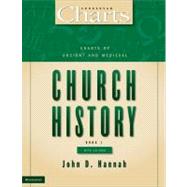
| Introduction: Church History in a Nutshell | |||
|
|||
|
|||
|
|||
|
|||
|
|||
| The Ancient Period of Church History (from Christ to 600) | |||
|
|||
|
|||
|
|||
| The Age of the Apostles (from Christ to 100) | |||
|
|||
|
|||
|
|||
|
|||
|
|||
|
|||
|
|||
|
|||
|
|||
|
|||
|
|||
|
|||
|
|||
|
|||
|
|||
| The Age of the Earliest Church Fathers (from 100 to 150) | |||
|
|||
|
|||
|
|||
|
|||
|
|||
| The Age of the Apologists (from 150 to 300) | |||
|
|||
|
|||
|
|||
|
|||
|
|||
|
|||
|
|||
|
|||
|
|||
|
|||
|
|||
|
|||
|
|||
|
|||
|
|||
|
|||
|
|||
|
|||
|
|||
|
|||
|
|||
|
|||
|
|||
|
|||
|
|||
|
|||
|
|||
| The Triumph of the Church over the Empire (from 300 to 600) | |||
|
|||
|
|||
|
|||
|
|||
|
|||
|
|||
|
|||
|
|||
|
|||
|
|||
|
|||
|
|||
|
|||
|
|||
|
|||
|
|||
|
|||
|
|||
|
|||
|
|||
|
|||
|
|||
|
|||
|
|||
|
|||
|
|||
|
|||
|
|||
|
|||
|
|||
|
|||
|
|||
|
|||
|
|||
|
|||
|
|||
|
|||
|
|||
| The Medieval Period of Church History (from 600 to 1500) | |||
|
|||
|
|||
|
|||
|
|||
|
|||
|
|||
|
|||
|
|||
|
|||
|
|||
|
|||
|
|||
|
|||
|
|||
|
|||
| The Rise of the Islamic Faith | |||
|
|||
|
|||
|
|||
| The Continuing Christological Controversy | |||
|
|||
|
|||
| The Division of the Church: West and East | |||
|
|||
|
|||
|
|||
|
|||
| The Crusades | |||
|
|||
|
|||
| Monasticism | |||
|
|||
|
|||
| Scholasticism | |||
|
|||
|
|||
|
|||
|
|||
|
|||
|
|||
|
|||
|
|||
|
|||
|
|||
|
|||
|
|||
|
|||
|
|||
|
|||
|
|||
|
|||
|
|||
|
|||
|
|||
|
|||
|
|||
|
|||
|
|||
|
|||
| The Fracturing of the Church: The Need for Reform | |||
|
|||
|
|||
|
|||
|
|||
|
|||
|
|||
|
|||
|
|||
|
|||
|
|||
|
|||
|
|||
|
The New copy of this book will include any supplemental materials advertised. Please check the title of the book to determine if it should include any access cards, study guides, lab manuals, CDs, etc.
The Used, Rental and eBook copies of this book are not guaranteed to include any supplemental materials. Typically, only the book itself is included. This is true even if the title states it includes any access cards, study guides, lab manuals, CDs, etc.